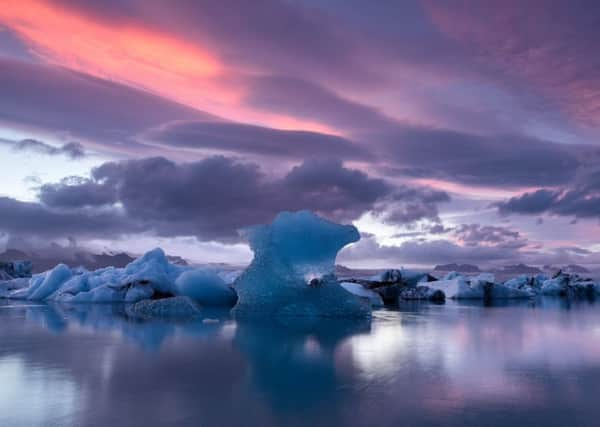Inside Environment: Arctic region's future will have implications for Scotland


Though sovereign rights belong to just eight countries - the USA, Canada, Russia, Norway, Sweden, Denmark, Finland and Iceland - what happens there has much wider significance. There are a number of reasons why.
Just like the rest of the planet, it is suffering from the impacts of climate change. However, warming is happening more rapidly there than in the rest of the world - at around double the rate, according to scientists.
Advertisement
Hide AdAdvertisement
Hide AdThis is largely because of the albedo effect, where warming leads to a decrease in ice cover that increases the amount of solar energy absorbed and so drives further warming. The effect also applies to snow-covered surfaces, with melting exposing darker ground that absorbs more radiation, leading to more melt.
Research shows some exceptions to the warming trend - places where ice is building back up or temperatures are cooling. But warming is winning overall.
The sea ice that is a critical component of Arctic marine ecosystems is projected to disappear in summer within a generation. Coverage in 2012 was the lowest ever recorded.
And this is not just a local problem. The knock-on effects of rapidly melting ice sheets are increasing sea levels around the world and have the potential to change climate and rainfall patterns elsewhere.
In 2013, Westminster outlined the UK’s policy towards the Arctic in a report published by the Foreign Office. The Scottish Government was not consulted. Now Holyrood’s Scottish Affairs Committee has launched a new inquiry, Scotland and the High-North, which aims to establish the opportunities and threats posed in the region and the UK approach to addressing them. The inquiry will set out to establish the opportunities and threats posed in the region, and the UK approach to addressing them.
The issues to be addressed are complex. The committee, chaired by SNP MP Pete Wishart, will look at the UK’s potential role in encouraging protection of the natural environment and the Scottish renewable sector’s contribution to reducing greenhouse gas emissions.
It will focus on the key challenges facing the region and Scotland’s role in addressing them; whether there are benefits to Scotland and the UK from further developing relationships with Arctic nations; the UK’s role in defence of the High-North; identifying commercial opportunities for Scottish industry; analysing whether Westminster is doing enough to promote opportunities for Scottish industries such as fishing and shipbuilding; and assessing potential opportunities and risks of increasing energy interconnectivity between the UK and the polar region, and whether better links could benefit Scottish concerns.
“The Arctic region, economically, environmentally and politically, is likely to play an important role in Scotland’s future,” according to Mr Wishart.
Advertisement
Hide AdAdvertisement
Hide AdThe Arctic Council, with members including Russia and the USA, plays a major role in dictating what takes place in the region. At present the UK attends as a mere observer, but the inquiry will discuss its future position and “how best to exert influence”. Whatever the findings, it will be interesting to get a Scottish perspective on the UK’s stance on the Arctic.